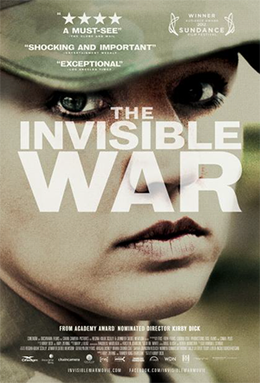On Monday
afternoon, Jonathan and I were walking through Berkeley for lunch, and he
casually asked—as he kindly does when he knows I’m preaching—“What’s your
sermon about?”
I
said, “Pentecost!” And he, as a secular Jew, rightfully said something like, “Right. Whatever
that is…?”
I tried to explain, loosely, that it’s the 50th day of Easter and we
celebrate the Holy Spirit coming to the Apostles. This slough of church words did
not unfurrow his eyebrows.
I
tried again: The apostles were all gathered together for dinner—it was 50 days
after Passover—and were locked in their upper room in Jerusalem again because they were
still afraid. Things hadn’t quite settled down with the powers that be, and the
apostles were struggling to proclaim the Gospel that Jesus had given them.
The
thing is, I think, they were so used to Jesus being around, providing direct
instructions day after day, that once left to their own devices, they realized
how much they’d relied on him to do the work of the church. They felt lost.
Before
he died, Jesus had told the apostles, “I will not leave you orphaned…God will send you an advocate to be with you…” (John 14). As usual, I imagine that what Jesus said and the
disciples heard were not exactly the same. They likely expected some…person to
show up and take the lead. Have you ever felt like that? Like in a “Jesus take
the wheel” kind of way? You and Peter both.
So
in this Acts story, they’re behind closed doors, whispering the good news to
one another, paralyzed with fear. And for good reason! The leaders that killed
Jesus are still the leaders. Politics are tenuous, and nobody wants to be made
an example. The apostles face a tough choice—stay safe and quiet or take the
risk and go public? “Will the movement be ruled by fear? Will the apostles be
contained and confined? Rendered timid and silent? Pentecost comes with a bold
answer—no.”[1]
Herein
lies the deep subversive nature of the Pentecost event and of the early church.
Pentecost
was and is a public display of our freedom from fear, found in the liberating
power of Christ crucified, emboldening us to speak the truth of the Gospel aloud.
In
the Acts of the Apostles, the powers and principalities are wary of this
freedom to speak. They try to discredit this revolutionary act by claiming that
those bold enough to speak are crazy or drunk.
No
earthly power can match this empowered community of believers—preachers,
fishermen, widows, prostitutes, tax collectors, lepers, women, children.
The
promise that Jesus made to the apostles—that they will have this power—is of
course tied to conflict and persecution. Remember when he warned them that they
would be persecuted for being associated with him (John 15)? Welp, this is it. But he
also said that in those scary times, the Holy Spirit would empower them to
speak their truths even more boldly.
Pentecost
means the apostles can go into their community and say “Jesus the Christ is
risen—alleluia! You are free from sin! You are free from bondage! Get up—walk!
Be healed! You are my sister, my brother—eat at my table! Drink and be filled!
You are the beloved child of the living God! No high priest, no king, no excuse
for a civic leader can chain you anymore. You are free.”
Here,
now, in 2015, where are we? Are we locked in the upper room, fearful of where
our truths may lead? Are we cautious to identify ourselves as Christians? Are
we cautious to say “God loves you” when we meet someone who clearly believes otherwise?
Are we cautious to say “come eat at our table”?
Because
here, now, in 2015, it’s not hip to dig Jesus. It’s not hip to say “God loves
you” in public. And the Religious Right has commandeered so much of our precious
holy language that when we say “My faith informs my politics” we have to
explain really hard what we don’t
mean.
Proclaiming
liberation is still unpopular in our world of war, mass incarceration, police
brutality, racism, sexism—we have much to fear.
But
after today, after the Pentecost has come, we are free. We are free to be bold.
We are bold to proclaim that Jesus the Christ is risen—alleluia! We are bold to
proclaim that we and every living thing are free from the power of sin and
death.
When
we see or hear the “good news” being used to exclude, hurt, control, or
otherwise disempower our sisters and brothers, we are bold to say enough now!
No more!
When
we see or hear the name of Christ used to justify violence, oppression, racism,
misogyny, sexism, heterosexism, imperialism, patriarchy, war, slavery, or
silence—in our churches, schools, government, families—we are bold say enough
now! No more!
The question
I leave you with, dear sisters, is not “if” you will boldly proclaim the liberating
truths of the Gospel –but when, where, and how.
May you be emboldened by the power of the Holy
Spirit this day and always. Amen.
[1]
Bill Wylie-Kellerman, “In the Boldness of the Spirit: Fellowship and risk before
the authorities” Sojourners.
.jpg)


